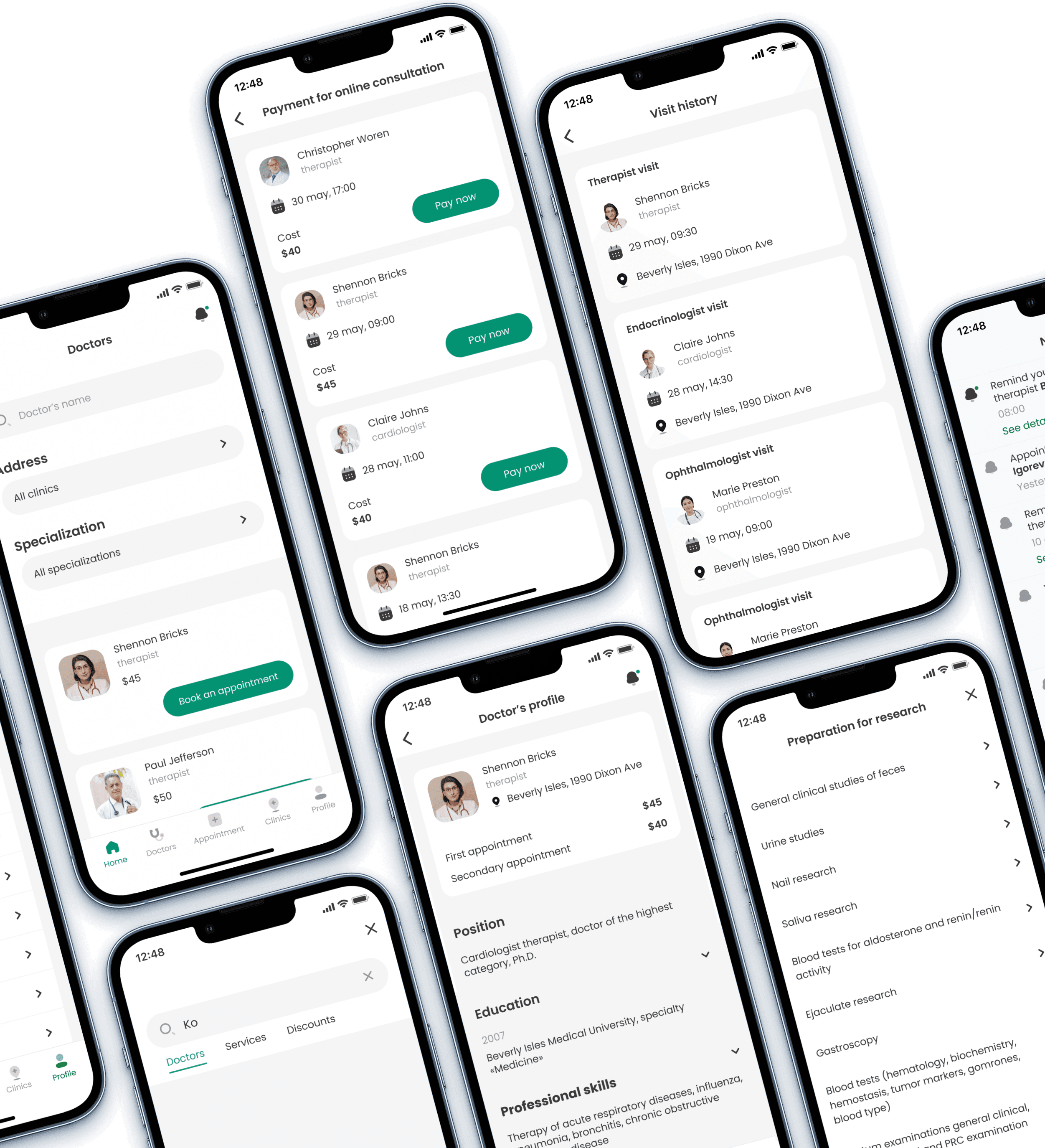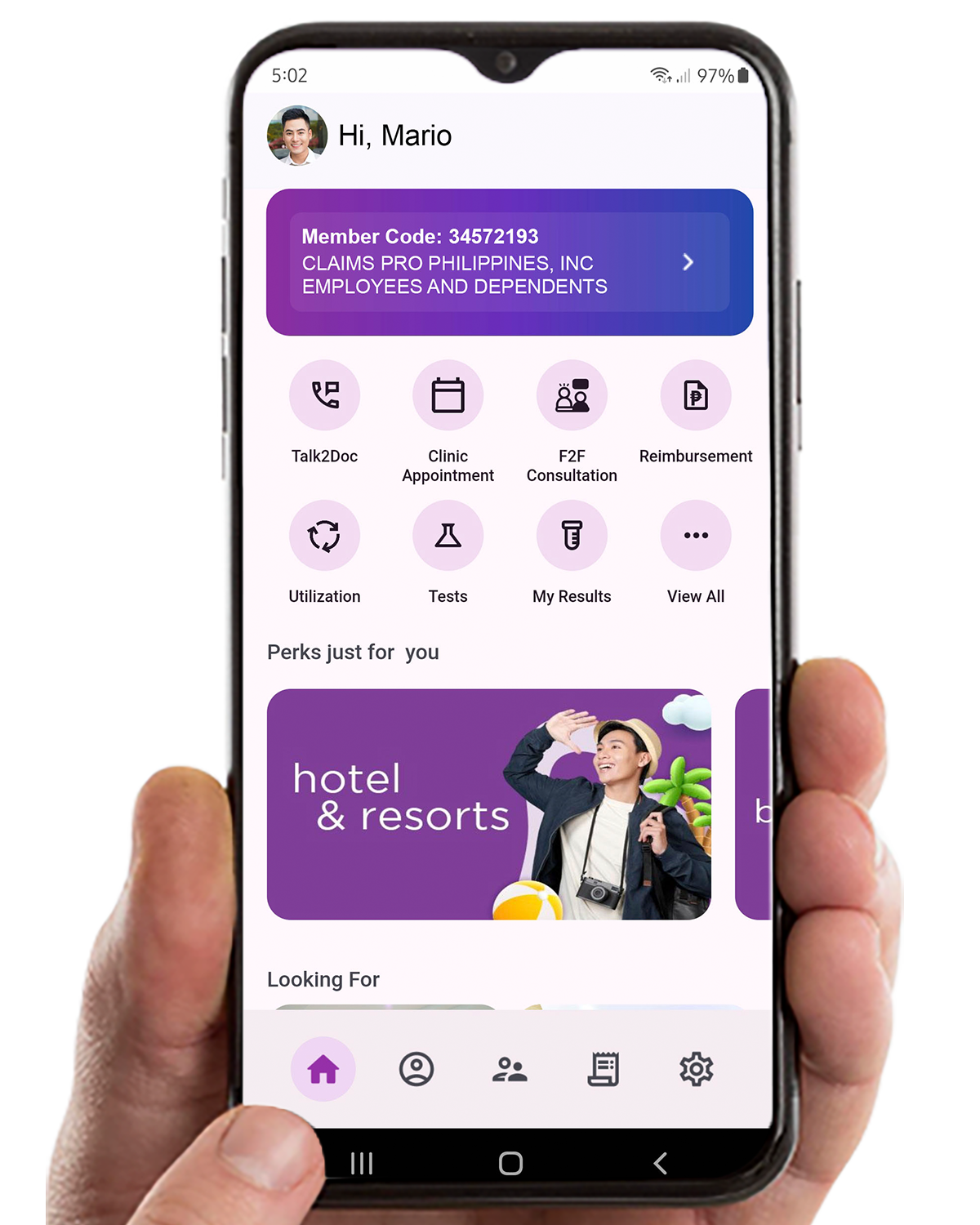The Future of Healthcare: Innovative Solutions with a Mobile App for Clinics
The Future of Healthcare: Innovative Solutions with a Mobile App for Clinics
Blog Article
The Future of Medical Care: Why Clinics Need a Mobile App Today
As the health care landscape proceeds to advance, centers deal with installing stress to adjust to client assumptions for better convenience and accessibility. The assimilation of mobile applications can offer as an important approach for enhancing individual interaction and improving operations.
Changing Patient Assumptions
As the landscape of medical care progresses, individual expectations are undertaking a substantial transformation. Today's people are progressively looking for convenience, access, and customized care. With the surge of modern technology, particularly mobile applications, individuals currently anticipate a smooth assimilation of health care solutions into their everyday lives. They prefer the capacity to manage consultations, gain access to clinical documents, and connect with doctor through their smart devices, mirroring a shift in the direction of an extra positive approach to health monitoring.
In addition, individuals are becoming much more informed and encouraged, often investigating conditions and therapies on-line before consultations. This heightened awareness is coupled with a demand for transparency in medical care procedures, consisting of expense quotes and therapy choices. Therefore, service providers are forced to adapt by taking on digital devices that enhance the patient experience.
The assumption for timely and efficient interaction has never ever been higher, with many people considering responsiveness a crucial part of high quality treatment. mobile app for clinics. In this advancing landscape, healthcare companies must identify these transforming expectations and take advantage of mobile applications to foster a much more patient-centric approach, making certain that they not only fulfill yet exceed the criteria set by today's enlightened customers
Enhancing Patient Engagement

Mobile applications promote communication between people and health care service providers, enabling real-time appointment organizing, tips for drug adherence, and straight messaging features. These capabilities not only enhance comfort yet also develop a feeling of accountability amongst individuals. Moreover, mobile applications can offer instructional content tailored to individual demands, aiding clients better comprehend their conditions and therapy alternatives.
The assimilation of gamification elements within health care apps can also motivate clients to participate in healthy habits, enhancing favorable lifestyle adjustments. By tracking progression and fulfilling accomplishments, patients are more most likely to remain devoted to their health and wellness goals. Eventually, boosting person engagement through mobile applications leads to boosted health results, better patient fulfillment, and an extra collaborative medical care experience. Facilities that prioritize this facet will likely see a substantial influence on the high quality of care supplied.
Simplifying Clinic Operations
Enhancing facility procedures is crucial for improving workflow effectiveness and optimizing person care. The application of mobile applications can significantly reduce management problems, allowing doctor to focus more on individual communications. By automating appointment scheduling, person check-ins, and invoicing processes, centers can reduce wait times and enhance total operational effectiveness.
Mobile apps additionally facilitate real-time accessibility to individual records, allowing medical care professionals to make educated decisions promptly. This immediacy not only improves the top quality of treatment however also decreases the chance of errors connected with misplaced or dated information. In addition, leveraging mobile innovation supports a more organized technique to managing person follow-ups and therapy strategies, ensuring that no crucial steps are forgotten.
This allows for timely replenishment and helps avoid disruptions in patient treatment due to equip shortages. By integrating these performances into their everyday procedures, clinics can create a much more effective and natural setting, inevitably leading to improved client results and fulfillment.
Improving Communication Networks
Efficient communication is regularly pointed out as a keystone of top quality medical care delivery. In today's busy medical environment, mobile applications can dramatically enhance interaction channels between clinics, patients, and medical care service providers. By integrating mobile apps into their operations, facilities can help with real-time interactions, guaranteeing that individuals receive prompt info regarding their visits, examination outcomes, and treatment plans.
Mobile apps additionally encourage clients to connect straight with their healthcare teams with safe and secure messaging features. This straight line of communication cultivates a feeling of engagement and enables immediate information of issues, which can cause Check Out Your URL better adherence to therapy protocols. Furthermore, push notifications can remind clients of upcoming consultations or medicine timetables, reducing no-show prices and improving overall wellness results.

Staying Competitive in Medical Care
In a rapidly developing health care landscape, organizations have to prioritize advancement and adaptability to maintain an one-upmanship. The assimilation of mobile applications into health care solutions is no more optional; it is vital for facilities aiming to enhance individual engagement, enhance procedures, and boost total service shipment.
As people increasingly depend on electronic systems for health monitoring, facilities that fail to take on mobile modern technology risk dropping behind. A properly designed mobile application can offer functions such as consultation scheduling, telemedicine appointments, and accessibility to medical records, providing clients with benefit and promoting loyalty.

Rivals are likewise investing in mobile solutions, so staying in advance calls for continual improvement and remaining informed about technical improvements. Centers have to not only execute mobile applications however also engage in normal updates and refinements. Eventually, the effective integration of mobile innovation will certainly differentiate forward-thinking medical care organizations and established the criteria for patient-centric care in a digital globe.
Conclusion
In verdict, the combination of try this out mobile applications in facilities is important to address the advancing landscape of client expectations. By boosting individual interaction, improving procedures, and enhancing communication networks, centers can substantially increase health and wellness results. In addition, the fostering of mobile innovation positions facilities to continue to be affordable in a significantly electronic health care environment. Ultimately, the calculated implementation of mobile applications represents an important action towards delivering customized and obtainable healthcare, thus satisfying the needs these days's encouraged patients.
Eventually, enhancing person engagement with mobile applications leads to improved wellness end results, greater client contentment, and a more collaborative medical care experience.Mobile apps also promote real-time access to individual records, allowing healthcare experts to make informed choices quickly. In today's busy clinical setting, mobile applications can significantly improve interaction channels in between centers, individuals, and medical care suppliers.Mobile apps likewise empower people to communicate directly with their health care teams with protected messaging features. Ultimately, the tactical execution of mobile apps represents a critical step toward delivering available and individualized health care, thus meeting the demands of today's empowered individuals.
Report this page